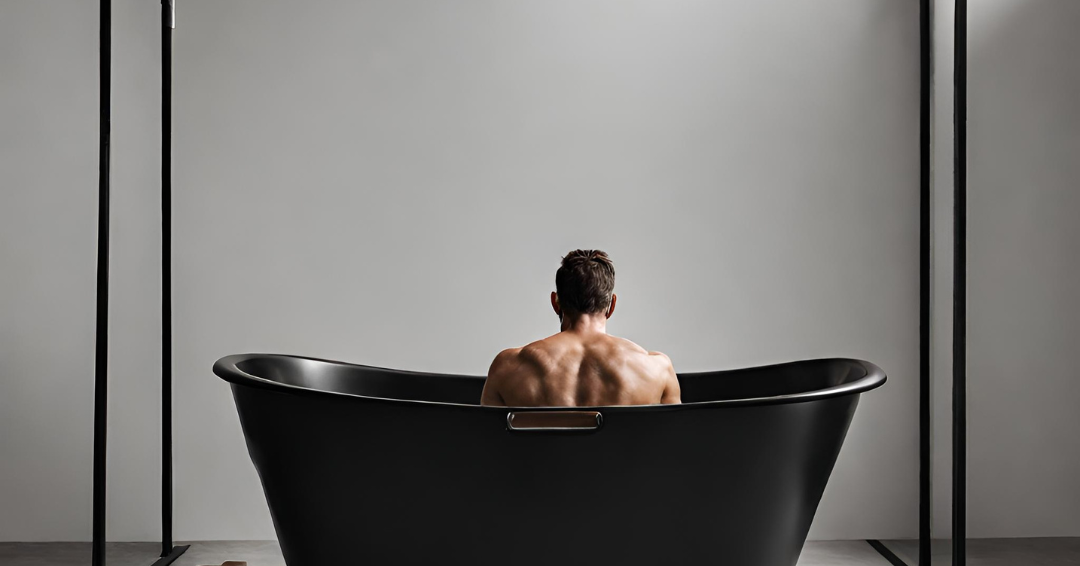
Best Times for Cold Plunge - Optimize Your Therapy
Cold plunging, also known as cold water immersion, is a popular therapy for improving physical and mental health. Determining the best time to cold plunge can enhance the benefits of this practice. According to experts, there are several optimal times for cold plunging.
Key Takeaways:
- Cold plunging, or cold water immersion, is a beneficial therapy for overall well-being.
- Timing plays a crucial role in maximizing the benefits of cold plunge therapy.
- The best times for cold plunging include after workouts, in the morning, during the afternoon break time, and after a hot sauna session.
- Each timing offers unique advantages for physical and mental health.
- Listen to your body's response and adjust the frequency of cold plunges according to your goals and physical condition.

How Often to Cold Plunge for Optimum Results
The frequency of your cold plunges plays a significant role in maximizing the benefits of this therapy. While the best time to cold plunge depends on your goals and preferences, here are some guidelines to consider:
Cold Plunge Frequency
For most individuals, cold plunging two to three times per week is recommended for optimal results. This frequency allows your body to adapt to the cold water and experience the therapeutic effects without overexposure. However, it is important to listen to your body's response and adjust the frequency accordingly.
Cold Plunge Schedule
When it comes to scheduling your cold plunges, you have the flexibility to choose what works best for you. Some prefer to cold plunge in the morning to invigorate and energize their bodies for the day ahead. Others find that a cold plunge after their workouts helps with muscle recovery and reduces inflammation.
Another popular time for cold plunging is during the afternoon break time. Taking a quick dip in cold water can provide a refreshing mental and physical boost, helping you stay focused and rejuvenated for the rest of the day.
Additionally, combining a cold plunge with a hot sauna session can enhance the benefits of both therapies. The contrast between hot and cold stimulates blood circulation and promotes detoxification, leaving you feeling revitalized.

Cold Plunge Effects
The effects of cold plunging can vary from individual to individual. Regular cold plunges have been associated with several benefits, including improved immune function, enhanced mood, increased alertness, and reduced muscle soreness.
Cold water immersion also triggers the release of endorphins, providing a natural mood boost and helping to alleviate symptoms of depression and anxiety. It can improve sleep quality and promote a sense of relaxation and well-being.
However, it is important to note that cold plunging may not be suitable for everyone. If you have any underlying medical conditions or concerns, it is recommended to consult with a healthcare professional before incorporating cold plunges into your routine.
| Frequency | Benefits |
|---|---|
| Two to three times per week | Maximizes therapeutic effects without overexposure |
| Varied schedule options |
Morning: Invigorates and energizes for the day After workouts: Aids in muscle recovery and reduces inflammation Afternoon break time: Provides mental and physical boost for enhanced productivity Combined with hot sauna session: Promotes detoxification and blood circulation |
| Individual effects | Improved immune function, Enhanced mood, Increased alertness, Reduced muscle soreness, Natural mood boost and stress relief |
Conclusion
In conclusion, determining the best time for cold plunging can help optimize the benefits of this invigorating therapy. The recommended times for cold plunging include after workouts, in the morning, during the afternoon break time, and after a hot sauna session. Each of these timings offers unique advantages for physical and mental well-being.
Additionally, the frequency of cold plunges should align with your goals and physical condition. Finding your ideal frequency and listening to your body's response is crucial for achieving the desired outcomes. Remember to start slow, gradually increase the frequency, and establish a sustainable routine.
By incorporating cold plunging into your wellness journey, you can enhance your overall health and well-being. So, when should you cold plunge? Timing is key, and now armed with the knowledge of the best times to cold plunge, you can harness the full potential of this therapy for a rejuvenated body and mind.

More content you'll love:
Benefits of a Cold Plunge After Workout
Boost Immunity with a Cold Plunge Routine
Boost Your Mood: Cold Plunge and Dopamine Secrets
Cold Plunge Benefits for Brown Fat Activation
Cold Plunge Benefits: Morning vs. Night Sessions
Cold Plunge Risks: Can It Cause Hypothermia?
Cold Plunge Risks: Can It Cause Nerve Damage?
Is Cold Plunge Safe During Pregnancy? Find Out!
Unveiling the Cost: Why Are Cold Plunges So Expensive?



Leave a comment